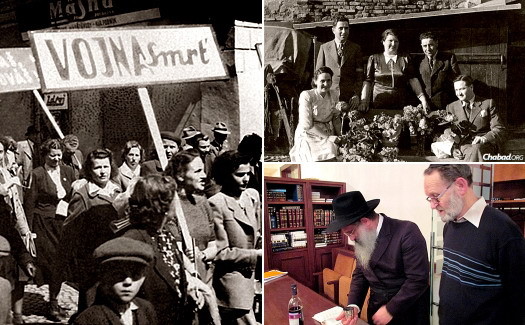
Slovakian Man Fulfills His Father’s Dying Wish, 70 Years Later
They sat together in the car, driving from Bratislava, the capital of Slovakia, to Vienna, Austria, just an hour away. Rabbi Baruch Myers was accompanying Ivan Pasternak, a 70-year-old member of his community who was going to have his circumcision, finally entering into the covenant of Abraham.
“There are a number of such men in our community,” explains Myers, who has served as chief rabbi and Chabad representative to Slovakia since 1993. “There were years of Communist rule when it was socially unacceptable and only the most devout kept this tradition alive. Over the years, many men and boys have decided to ‘take the plunge,’ thus earning their Jewish names and the right to be called to the Torah.”
Pasternak had been somewhat of an enigma to the rabbi. A teacher by profession, he regularly attended services every Shabbat in the cozy little sanctuary carved out from the cavernous old synagogue that was far too large for a community reduced to a fraction of its prewar self, having been decimated by World War II and the Holocaust.
After his retirement and the passing of his wife, Zuzka, Pasternak took up the duties ofshamash, caring for the synagogue and making sure that the books were in order.
Yet he was hesitant to undergo circumcision, even if not doing so created a barrier between him and the crusty old stalwarts who formed the backbone of the regular minyan(the quorum of 10 Jewish men needed for public prayer). They would grumble in Hungarian about the younger men who lacked Jewish names and the education they carried with them from their youths.
During Simchat Torah of 2014, something changed. Exuberant with dancing, Pasternak told the rabbi that he was ready. He would have a brit milah and take the Hebrew name “Ilan,” which sounds similar to Ivan and is quite popular inIsrael today.
As they drove towards Vienna, Pasternak told the rabbi the other reason he chose that name.
War Interrupts Everything
“My family is originally from Prešov, “he began. “My parents, Marta and Teodor Pasternak, were married there in 1940. It was not long after that Jews were persecuted in earnest by Czechoslovakian Nazi sympathizers. It was the first city where Jews had to wear special white arm bands, and it did not take long before many people, including my grandparents and many other relatives, were deported, never to be seen again.
“Realizing that Prešov, where they were well-known, would be a death trap for them, my parents decided to run to Pressburg [now Bratislava] using a false non-Jewish identity. Marta and Teodor Pasternak became Mr. and Mrs.Paulovič.
“I was born in the summer of 1944, and of course, there was no way they could have me circumcised under those circumstances. So they waited, hoping they would be able to do it when I got older. My father had a Hebrew name picked and everything.
“But three weeks after I was born, we were discovered. We were taken to a small concentration camp. Three days later, my father was sent off to Auschwitz and then Dachau.
“My mother and I were fortunate. She managed to bribe a Slovak night guard to turn a blind eye towards us, and she ran holding me for 15 kilometers to safety. My mother and I then hid with a gentile family. There were roundups very often; we were in constant danger of being discovered. I never cried all through those terrible times, my mother would tell me.
“When the war ended, we went back to Prešov, but nothing was the same. My mother waited patiently for my father to come home, hoping to hear that he was alive. But alas, we received word from the Red Cross that he had been killed in Dachau, as had been so many of my mother’s friends and relatives.
“We settled in Bratislava. My mother would tell me about her family, how large it had been and how almost everyone had been killed. Occasionally, I would ask her about my circumcision, knowing that it was something every Jewish male should have. She told me that she believed it could only be done for an eight-day-old baby, and it was impossible for me now.
“For years, I knew that my father had chosen a Hebrew name for me, and I was haunted by the fact that I had never taken the name.
“I married my wife, Zuzka, and we had two sons together. After she passed away five years ago, I began to think about circumcision again.”
Upon their arrival in Vienna, Ivan Pasternak underwent his brit and took the name Ilan—the very same name his father had chosen for him before being taken away by the Nazis.
“Today, I am more than 70 years old,” he reflects, “and I feel that my parents and my grandparents are looking down from somewhere above, and they are satisfied knowing that everything is in order.”
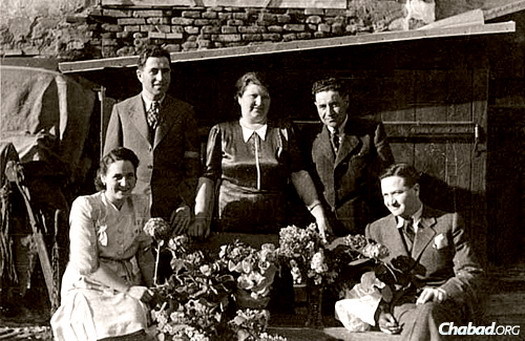
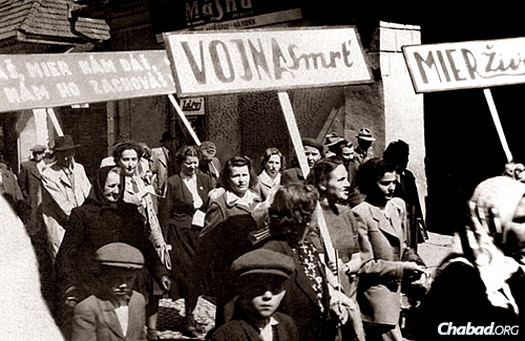
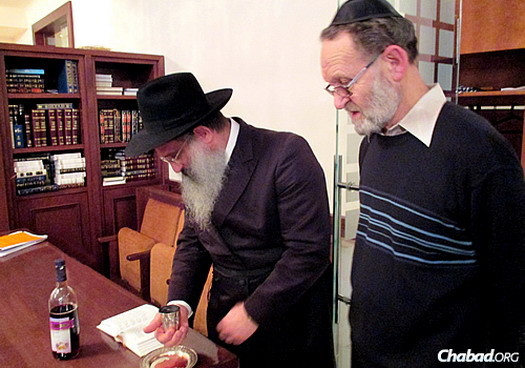
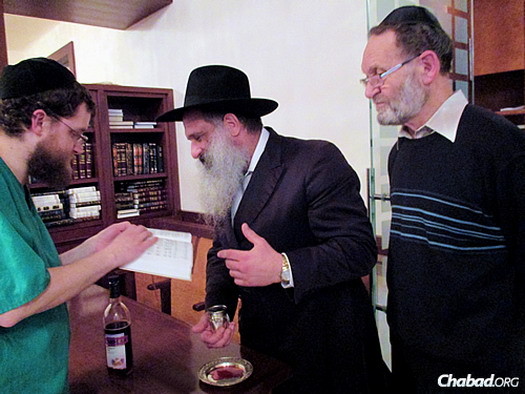











Mazal tov and Baruch Hashem
what about his 2 sons? Are they yidden? And if so, what about their brissim?
Very nice
The Myers are very special people, as are my children, the other Shluchim in Slovakia – Rabbi Zev & Mrs. Bina Stiefel from Piestany. Both work hard to bring Yiddishkeit back to Slovak Jews, many of whom are still uncomfortable to divulge their Jewishness to their neighbors. It’s not easy to be Shluchim there, but they do incredible work & B”H see great success. Thank you for posting this article.
rabbi and mrs myers
Doing great work in a challenging country